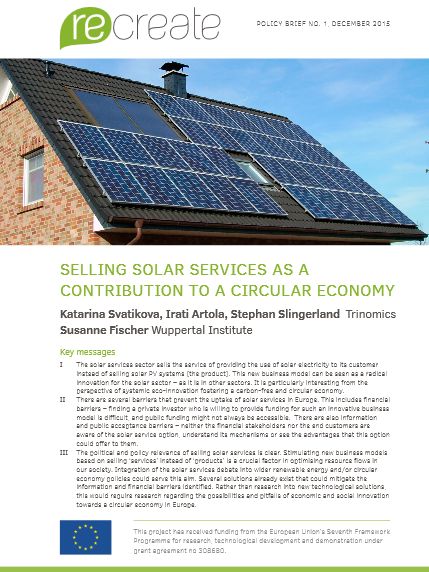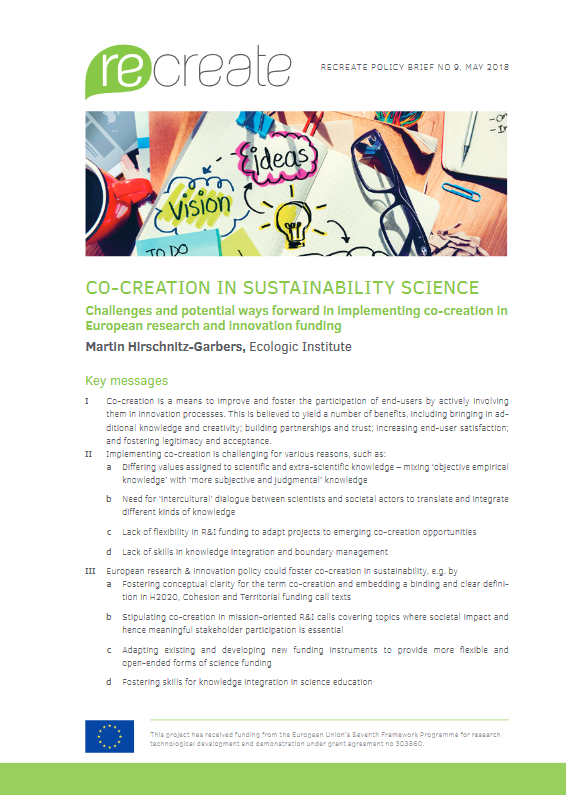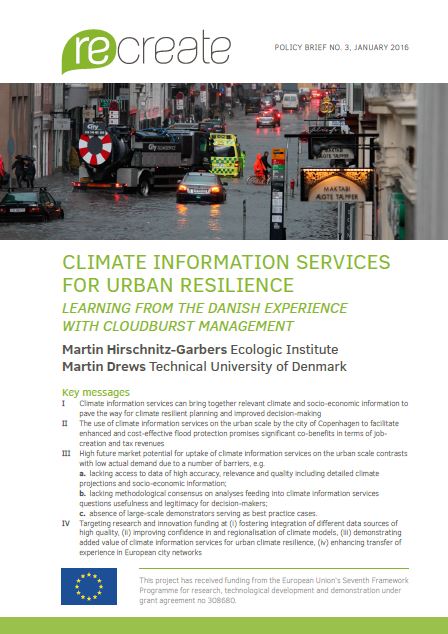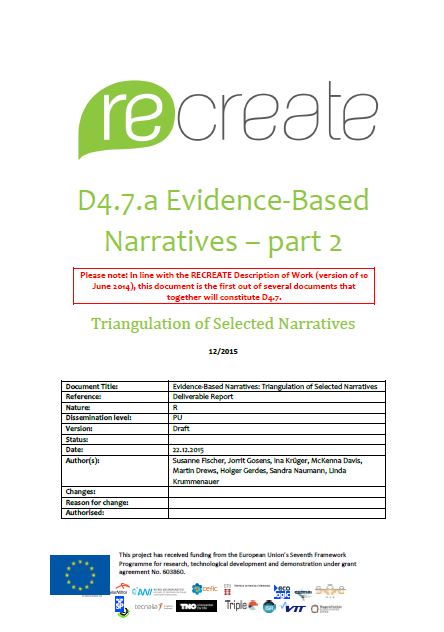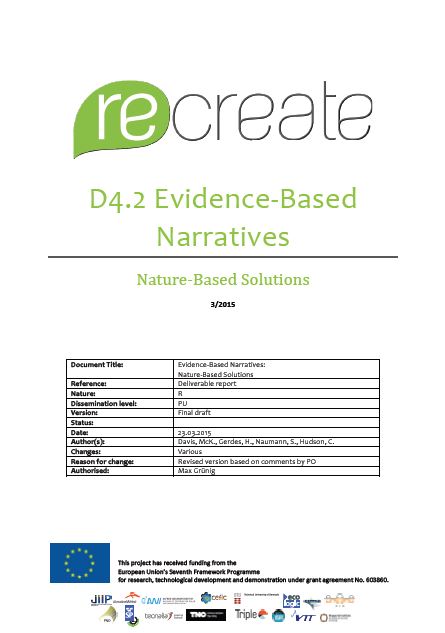Selling Solar Services as a Contribution to a Circular Economy
- Publication
- Citation
Svatikova, K., I. Artola, S. Slingerland and S. Fischer (2015). Selling Solar Services as a Contribution to a Circular Economy. RECREATE Project Policy Brief No. 1.
The solar services sector sells the service of providing the use of solar electricity to its customer instead of selling solar PV systems (the product). This new business model can be seen as a radical innovation for the solar sector – as it is in other sectors. It is particularly interesting from the perspective of systemic eco-innovation fostering a carbon-free and circular economy. The policy brief is available for download.
There are several barriers that prevent the uptake of solar services in Europe. This includes financial barriers – finding a private investor who is willing to provide funding for such an innovative business model is difficult, and public funding might not always be accessible. There are also information and public acceptance barriers – neither the financial stakeholders nor the end customers are aware of the solar service option, understand its mechanisms or see the advantages that this option could offer to them.
The political and policy relevance of selling solar services is clear. Stimulating new business models based on selling ‘services’ instead of ‘products’ is a crucial factor in optimising resource flows in our society. Integration of the solar services debate into wider renewable energy and/or circular economy policies could serve this aim. Several solutions already exist that could mitigate the information and inancial barriers identified. Rather than research into new technological solutions, this would require research regarding the possibilities and pitfalls of economic and social innovation towards a circular economy in Europe.
